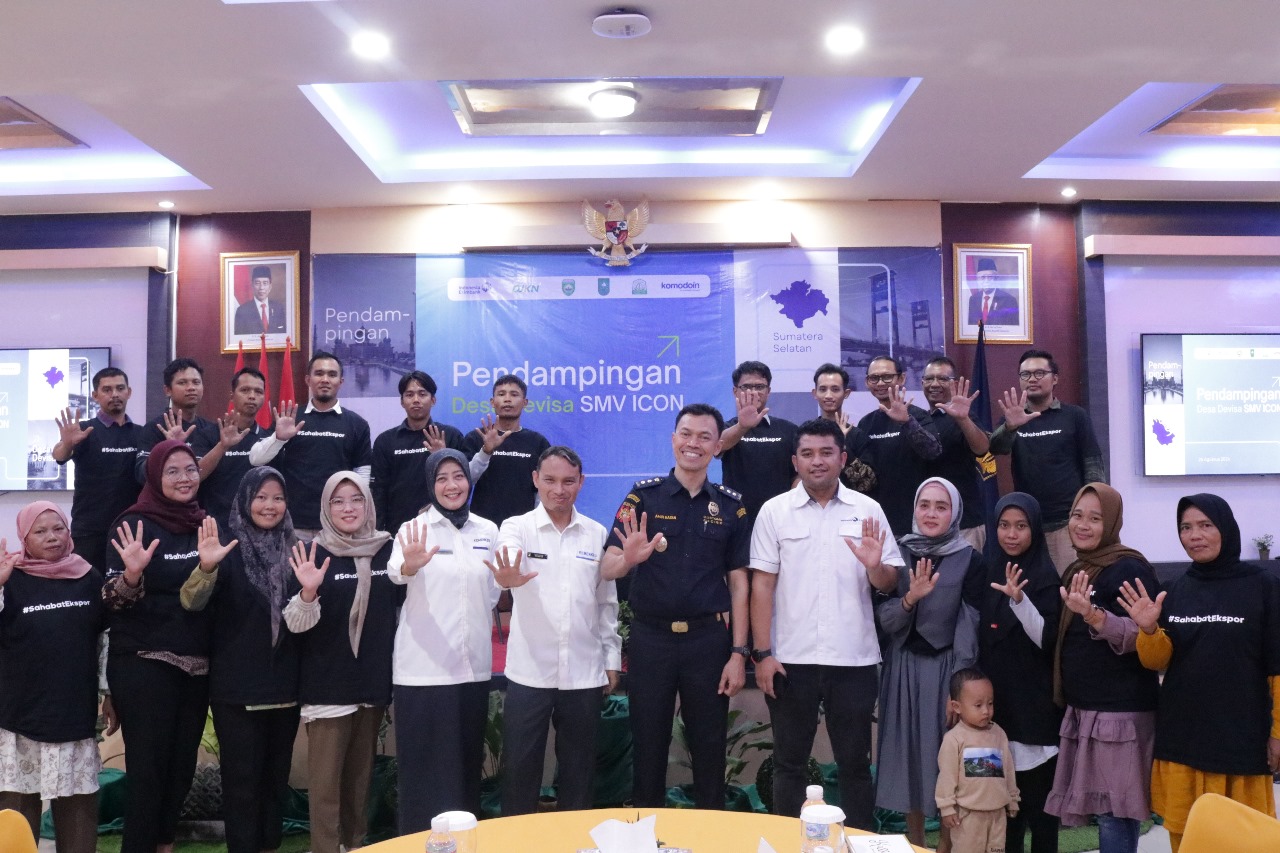
Share
Jakarta, September 25, 2024 – Indonesia has a variety of local products with great potential for export including Palembang woven fabric, sago from the Meranti Islands, and Gayo coffee from Aceh. As global demand for these products grows, they are expected to boost Indonesia’s exports and benefit regional economies.
Efforts to increase the export of these products can be seen from data by the Central Bureau of Statistics (BPS), processed by LPEI. In 2023, the largest increases in woven fabric exports were to Saudi Arabia (up by USD 12.25 million), the United Arab Emirates (up by USD 10.71 million), Mexico (up by USD 5.22 million), India (up by USD 4.72 million), and the Philippines (up by USD 1.97 million). The most exported fabrics included synthetic filament yarn fabrics (50.64%) and other synthetic staple fiber fabrics (13.77%).
Meanwhile, the value of Indonesia’s sago exports surged by 134.40% YoY in 2023, alongside a 164.86% YoY increase in export volume. This growth was mainly driven by high demand from China, Malaysia, Taiwan, the Philippines, and Singapore. Sago has captured global attention due to its non-GMO and gluten-free characteristics, appealing to health-conscious consumers.
In the first half of 2024, coffee export values increased by 10.79% YoY, showing positive impact from rising coffee prices in the global market. Coffee exports to several countries continued to increase, with the highest growth to Thailand (up by USD 10.88 million), Malaysia (up by USD 9.02 million), the United Arab Emirates (up by USD 6.38 million), and Armenia (up by USD 4.53 million).
Superior products like Palembang’s woven fabric, sago from Meranti Islands, and Gayo coffee from Bener Meriah, Aceh, have the potential to enter the export market within the next two years. To further promote the export of these three commodities, the Directorate General of State Assets (DJKN) at the Ministry of Finance, together with the Indonesia Export Financing Agency (LPEI), launched three Export Villages programs in South Sumatra, Riau, and Aceh through the Special Mission Vehicle (SMV) Icon program on August 29, 2024.
Ferdinan Lengkong, Head of DJKN South Sumatra, Jambi, and Bangka Belitung, stated that the SMV Icon program is a collaboration between the central and regional governments to achieve national economic goals by enabling villages to enter the export market through LPEI’s Export Village activities. This initiative is a strategic step that will positively impact regional economies, especially in South Sumatra, Riau, and Aceh.
“The Export Village program under the SMV Icon initiative aims to increase sustainable export and foreign exchange, expected to raise household income and welfare of craftsmen and play a role in global exports. This program is part of efforts to strengthen regional export capacity by developing the superior products of these villages,” said Ferdinan Lengkong.
Nilla Meidhita, Head of LPEI's SME Consulting Services Department, added that the Export Village Program seeks to promote local products, increase national foreign exchange, and improve the welfare of communities through the empowerment of cooperatives and SMEs. Through the training and guidance provided by LPEI, SMEs are expected to meet export standards and compete in global markets.
“LPEI provides comprehensive training and assistance, not only imparting in-depth knowledge to participants but also preparing them to face export challenges in a more structured and professional manner while supporting the development of village commodities for international markets,” said Nilla.
The government, through LPEI, continues to promote Export Villages to boost Indonesia’s exports. From 2020 until August 2024, the cumulative number of LPEI Export Villages has reached 1,545 across Indonesia, involving 134,918 farmers, fishers, craftsmen, and other residents. There are 23 leading export commodities from Export Villages, including coffee, seaweed, cocoa, palm sugar, and handicrafts.
The Palembang Woven Fabric Export Village consists of 6 villages with 20 craftsmen employing around 300 workers. This village has a production capacity of 600 cloths per year with a turnover of IDR 1.3 billion. Through the Export Village program, LPEI provides training on product quality improvement, market-trend-driven design development, and guidance to help Palembang’s woven fabric penetrate international markets such as the United States.
The Sago Export Village from Meranti Islands comprises 16 villages with over 6,000 farmers. With a production capacity of up to 1,000 tons per month, this program is expected to enhance the competitiveness of sago in international markets by improving quality, product diversification, and applying global standards so that Meranti’s sago can penetrate export markets in regions such as Malaysia and Singapore.
At the same time, the Gayo Coffee Export Village from Bener Meriah, Aceh, covers 220 villages with a total area of 192 hectares, producing 134.4 tons with sales potential reaching IDR 14.1 billion. To strengthen competitiveness and ensure sustainability, the Ministry of Finance, LPEI, and the Bener Meriah Regency Government established the Panca Gayo Aceh Cooperative as the off-taker for Gayo coffee to enter the global coffee market.